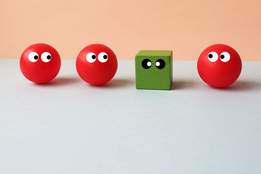What to KnowYou’re is another way of writing two words: ‘you are’ (as in ‘you’re making a mistake’). Your is a single word, and shows possession of a thing (as in ‘your paper has some mistakes’). If you can substitute the words you are then the correct choice is you’re. If you cannot substitute the words you are then you should use your.
You’re is a shortening (also known as a contraction) of you are. Here are some examples:
- "You’re learning the difference between two tricky words." (You are learning the difference between two tricky words.)
- "You’re doing a great job." (You are doing a great job.)
- "This is something that you’re never going to forget." (This is something that you are never going to forget.)
Your always comes before a noun. It typically means "relating to or belonging to you" or "made or done by you." Here are some examples:
- "Have you finished your homework?"
- "Your pants have a rip."
- "Can I borrow your pen?"
If you are still confused, there is a simple method for deciding which is the correct word to use. Start by using the words you are instead of you’re or your, and if the sentence still makes sense you can use you’re; if the sentence does not make sense you should probably use your.
- "You are baking a cake!" This sentence makes sense, and can also be written as "You’re baking a cake!"
- "You are cake does not taste very good." This sentence does not make sense, and should be written as "Your cake does not taste very good."
- "Tell me what time you are coming to my house for cake." This sentence makes sense, and can also be written as "Tell me what time you’re coming to my house for cake."
- "I am coming to you are house tonight for some cake." This sentence does not make sense, and should be written "I am coming to your house tonight for some cake."
The confusion with you’re and your most likely comes from the fact that we don’t just use apostrophes in contractions (like when we shorten you are to you’re, or I have to I’ve), we also use them to show possession (like when we write ‘my mother’s job,’ or ‘Jonah’s comb’). In the case of you’re, however, the apostrophe is standing in for a missing letter, and is not showing possession.
Remember to stick with you’re when shortening two words to one, and with your when showing possession of something. If you do you’re going to have fewer problems with this in your writing.




